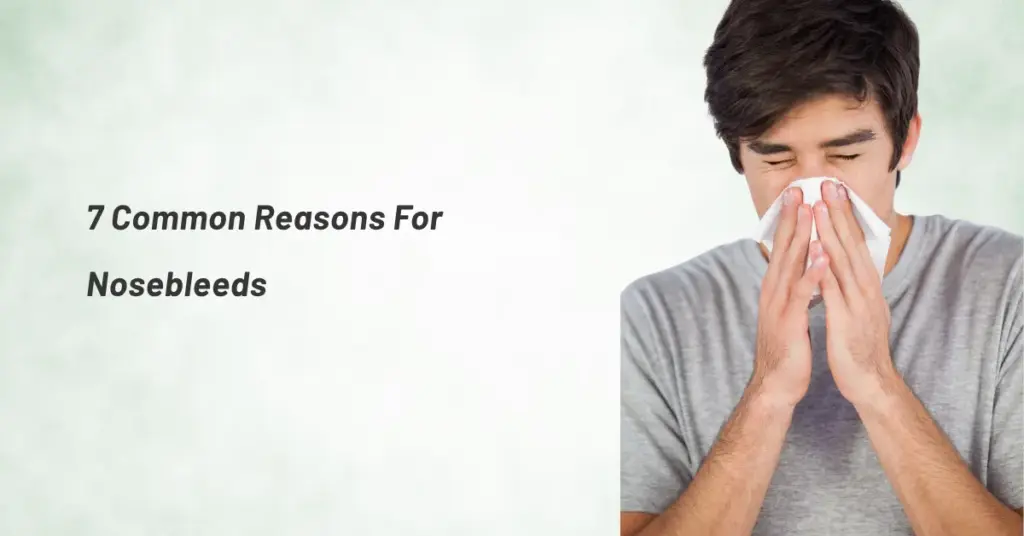Nosebleeds are common, but when they happen often, they can be unsettling. Many people wonder: what causes frequent nosebleeds? In most cases, they’re harmless, but sometimes they signal an underlying health issue. This article explores the common reasons for nosebleeds, and how to know when to worry about nosebleeds.
Why Do Nosebleeds Happen?
The lining inside your nose is filled with tiny blood vessels that are close to the surface. These vessels can easily break due to irritation, dryness, or injury, leading to bleeding. Occasional nosebleeds are usually nothing to worry about, but repeated episodes might indicate a more serious problem.
7 Common Reasons for Nosebleeds
If you’re wondering about frequent nosebleeds causes, here are the most common culprits:
Dry Air
Dry indoor air during winter or in air-conditioned rooms can dry out nasal membranes, making them more prone to cracking and bleeding.
Allergies or Nasal Irritation
Frequent blowing, sneezing, or using nasal sprays can irritate the lining of your nose.
Nose Picking or Injury
Minor trauma, such as picking your nose or getting bumped, can break delicate blood vessels.
Medications
Blood-thinning medications and frequent use of nasal decongestants can increase the risk of bleeding.
High Blood Pressure
Hypertension can make nosebleeds more common and harder to stop.
Bleeding Disorders
Conditions that affect clotting, like hemophilia, can cause frequent nosebleeds in adults and children.
Infections
Sinus infections or respiratory illnesses can inflame the nasal passages, leading to bleeding.
When to Worry About Nosebleeds
While most nosebleeds are minor, certain nosebleed warning signs should not be ignored:
- Bleeding that lasts longer than 20 minutes
- Very heavy bleeding
- Nosebleeds that happen after an injury to the head
- Feeling lightheaded or faint
- Frequent nosebleeds without an obvious cause
These symptoms could point to serious health issues and require prompt medical attention.
Final Thoughts
Understanding what causes frequent nosebleeds helps you take steps to prevent them and know when to seek help. Stay hydrated, avoid nasal trauma, and treat underlying conditions to reduce your risk. And remember, if you’re ever unsure when to worry about nosebleeds, it’s always best to consult a healthcare professional.

